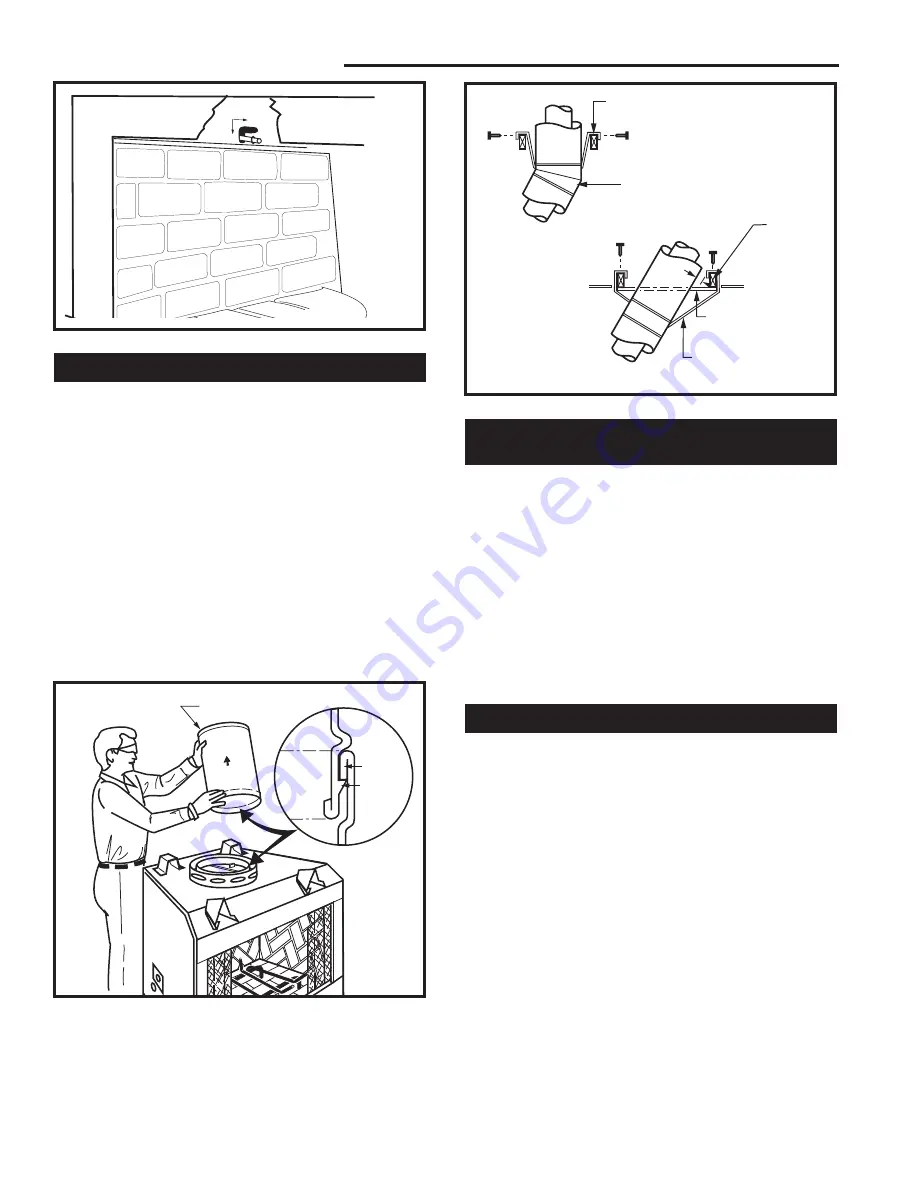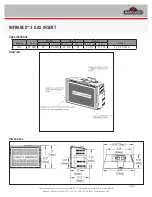
12
SHR Series Woodburning Fireplace
20001384
Installing the Chimney System
Start by attaching the first chimney section to the collar
on top of the fireplace.
Install the pipe as pictured in Figure 19. When you
get a good lock, you will hear the pipe clearly snap
together. Once sections are snap-locked in place, it is
extremely difficult to get them apart.
Make sure the
pipe is firmly snapped and locked together as each
pipe section is mounted.
When installing elbows, only outer pipe will snap- lock.
Middle pipes simply slide into position. Be sure to
always attach straps on upper elbow to a structural
framing member. (Fig. 20)
Continue installing the pipe as required until pipe is
installed up through the ceiling. At this point, you must
install a firestop spacer.
FP270/271
CR Series
2/19/99 djt
ELBOW STRAP
ANGLED STRAP
Fig. 20
Attach straps to a structural framing member.
FP270/271
Support Structure
Elbow Strap
(must be tight)
Ceiling
Hole
Framing
Angle Firestop
Chimney Support
Strap
(must be tight)
UP
FP558SHR
snap lock
5/11/99 djt
FP558SHR
Fig. 19
Install pipe, listening for the snap-lock to fasten.
Inner Pipe Section
Hem
Lance
Pipe
Rim
Pipe
Rim
FP710a
SHR OUTSIDE AIR LEVER
WOOD FIREPLACES
10/21/99
Closed
Open
Fig. 18
Outside air operation.
FP710a
Installing the Firestop Spacer
in the Ceiling Hole
A firestop spacer is used to keep pipe spaced properly
and required for safety.
Nail the firestop spacer (at each corner) to the framing
members of the ceiling hole.
Note:
A firestop spacer is
not required at the roof.
Hole sizes listed in Figure 14 for angled firestop spac-
ers provide minimum required air space to chimney
pipe for ceiling thickness up to eight (8) inches. When
combined thickness of ceiling material, ceiling joists and
flooring material exceeds eight (8) inches, adjustments
must be made in framing to assure that minimum air
spaces to chimney are maintained.
Proper Firestop Spacer Installation
Figure 21 shows different installation procedures for
both an area that
is
an attic and an area that
is not
an
attic.
If the area above the ceiling
is not
an attic, position the
firestop spacer with the flange on the ceiling side and
the angled portion extending up into the hole.
If the area above the ceiling
is
an attic, position the
firestop spacer with the flange on the top of the framed
hole and the angled portion extending down into the
hole.
Firestop spacers are not available for, nor are they
required on, vertical walls.
The chimney components (CF11) used on the SHR
series fireplaces have been tested and approved with
the area where the outer pipe slides through the firestop
spacer sealed with a noncombustible caulk if desired,
or left completely open with no sealant. This sealing
only applies to the SHR series fireplace.










































